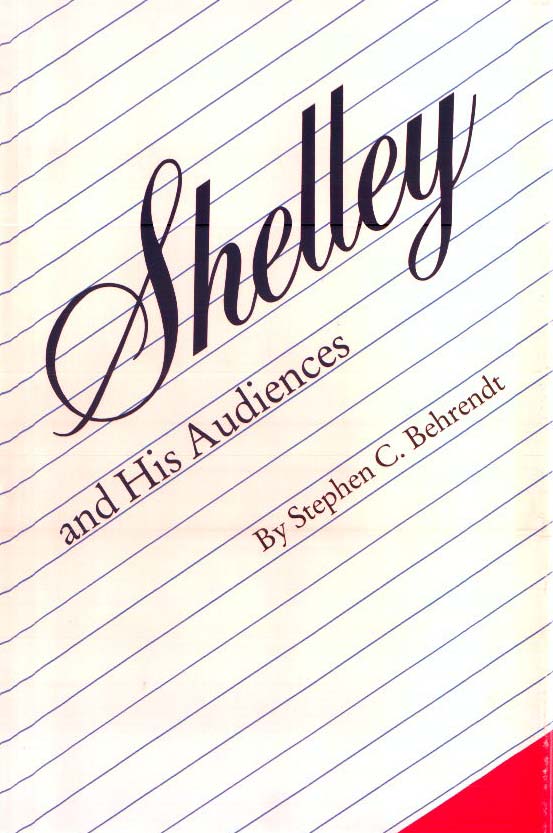 Percy Bysshe
Shelley was an accomplished rhetorician as well as a major poet
and prose writer, and his works in all genres are characterized
by his deliberate manipulation of the relationship between author
and reader. He employs a remarkable array of rhetorical and
thematic devices in service to the sort of humanitarian reform
that was always one of his principal objectives. Shelley was, in
fact, one of the first modern writers to take such deliberate
care to select, to envision, and in many instances to create
readers and to assign to them particular roles in the realization
of his works.
Percy Bysshe
Shelley was an accomplished rhetorician as well as a major poet
and prose writer, and his works in all genres are characterized
by his deliberate manipulation of the relationship between author
and reader. He employs a remarkable array of rhetorical and
thematic devices in service to the sort of humanitarian reform
that was always one of his principal objectives. Shelley was, in
fact, one of the first modern writers to take such deliberate
care to select, to envision, and in many instances to create
readers and to assign to them particular roles in the realization
of his works.
The book examines a broad range of Shelley's
writing, including not just the poetry but also less frequently
examined works like Shelley's prefaces to his works, his
published and unpublished essays, his early prose romances, and
his private letters. What emerges is a picture of an idealistic
and ambitious young author who took great pains to cast himself
in the role of radical humanitarian reformer.
There is a striking consistency in Shelley's
writings in terms of his characteristic themes: the rejection and
repudiation of revenge as a motive for human activity, the
salutary experience of love and community, and the exercise of
charity and self-sacrifice in a code of poetic ethics that
reveals Shelley's view of himself as prophet and patriot. Not
some mere idealistic dreamer , Shelley was in fact surprisingly
pragmatic and well informed when it came to matters of political
philosophy and rhetorical strategy, so that a study of his work
in the contexts of the diverse and sometimes non-overlapping
audiences to which he directed it reveals a dazzling variety of
ways of addressing those audiences
Lincoln:
University of Nebraska Press, 1989
return
to publications page
 Percy Bysshe
Shelley was an accomplished rhetorician as well as a major poet
and prose writer, and his works in all genres are characterized
by his deliberate manipulation of the relationship between author
and reader. He employs a remarkable array of rhetorical and
thematic devices in service to the sort of humanitarian reform
that was always one of his principal objectives. Shelley was, in
fact, one of the first modern writers to take such deliberate
care to select, to envision, and in many instances to create
readers and to assign to them particular roles in the realization
of his works.
Percy Bysshe
Shelley was an accomplished rhetorician as well as a major poet
and prose writer, and his works in all genres are characterized
by his deliberate manipulation of the relationship between author
and reader. He employs a remarkable array of rhetorical and
thematic devices in service to the sort of humanitarian reform
that was always one of his principal objectives. Shelley was, in
fact, one of the first modern writers to take such deliberate
care to select, to envision, and in many instances to create
readers and to assign to them particular roles in the realization
of his works.